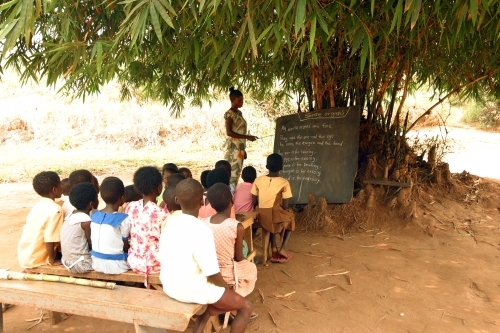
EU support for education in developing countries takes two main forms. The EU contributes to multi-donor frameworks focusing on primary education, such as the Education for All and the Global Partnership for Education programmes. In bilateral relations with developing countries, the EU delivers aid for all levels of education predominantly through the European Development Fund (EDF), funded by the Member States, as well as through the EU’s two major external aid instruments, the Development Cooperation Instrument (DCI) and the European Neighbourhood and Partnership Instrument (ENPI). In higher education, a wide range of international programmes targets students and academic staff in different geographical areas.
In future, the EU response to global education challenges will focus more than hitherto on providing equal access to quality education in countries lagging far behind in achieving globally agreed education targets. Particular attention will be given to children in situations of fragility. As a consequence of prioritising those developing countries most off track from these targets, the EU’s bilateral development grant aid to more advanced developing countries will be discontinued or phased out.
Read the complete briefing here.
–










[…] How is the EU supporting education in developing countries? […]
[…] However, there is no 1:1 equation that translates Africa’s economic growth into wealth for the poor. Hence development aid by international donors, including the EU, remains important. The EU’s development policy follows the UN Millennium Development Goals (MDGs). With the 2015 deadline for the MDGs approaching, we gathered the views of various stakeholders on the Post-2015 development agenda in a keysource. And we dedicated an entire briefing to the second of the eight MDGs, universal primary education, and examined the EU support for education in developing countries. […]